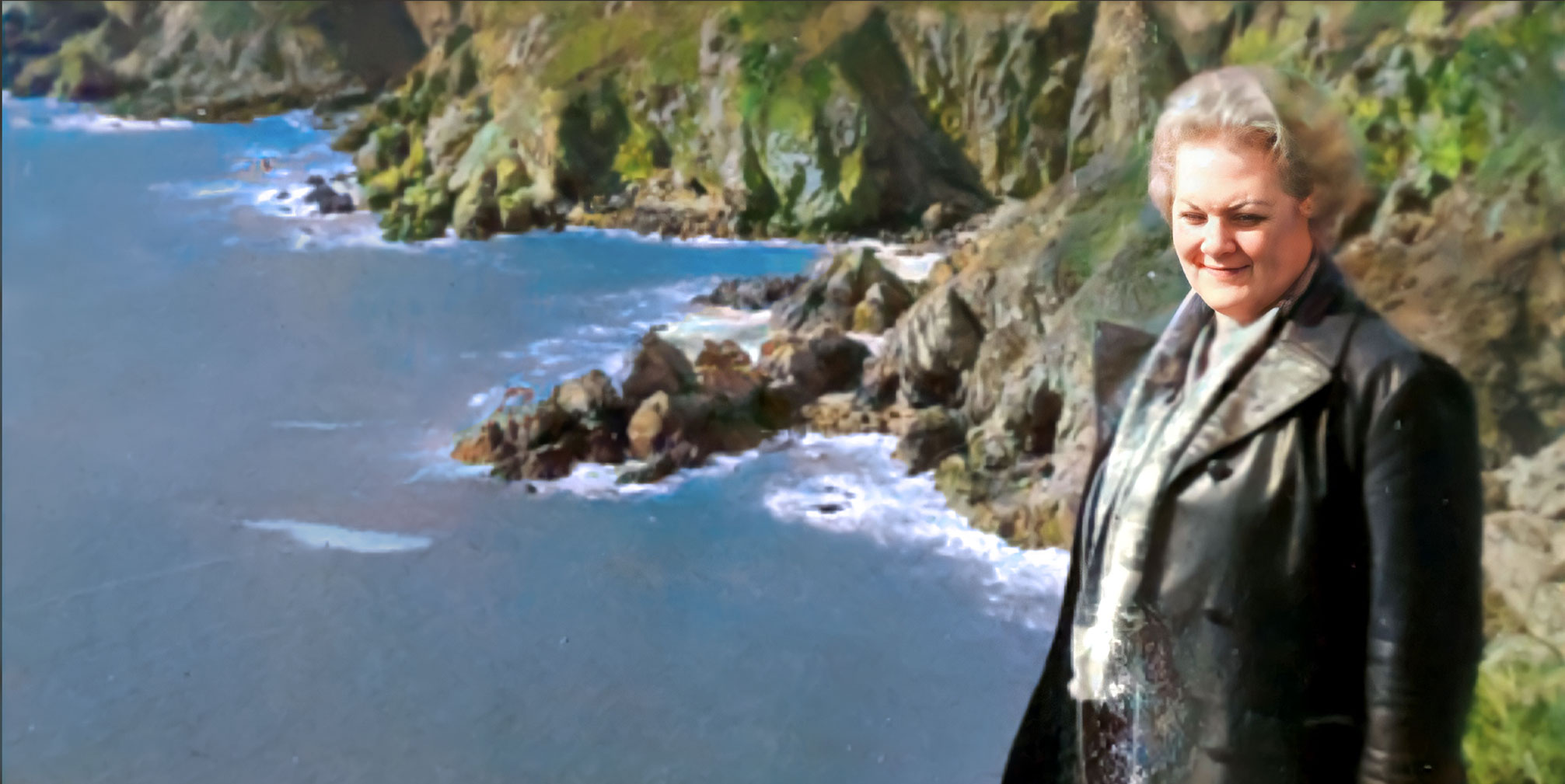The following story is written by Elsie’s daughter, Carole.
My mum, Elsie, was born on 25th June 1916. She was an ordinary, kind, and homely person who was happy with her lot. In her youth, she worked for a dressmaker in Great Portland Street, London. She was interested in clothes and fashion and was always smartly turned out. My mum was married to my dad, Jim. My dad retrained as a butler in the late 1960’s and so the family moved to a flat near St James Palace and clarence house that came with his new job. My mum was only a home cook, but soon became involved with cooking at dinner parties for dad’s employers, whose guests were often from other parts of the world and so traditional British fayre was usually requested.
Around the end of April 1973 she began to show differences in her behaviour and outlook. Neither mum, nor her GP, had any idea why this was happening. My dad’s employer kindly arranged for mum to visit his GP as a private patient as often as was needed. Various tests and scans were carried out, including some at the ‘Maida Vale Hospital for Nervous Diseases’ which has since closed. I can still recall the serious faces of the doctors as they told us it was a ‘brain problem’.
Days went by and my mum’s communication and physical got worse, her expression had changed to a constant frown. Mum was eventually admitted to the National Hospital in Queen’s Square and dad and I visited every day. – she was deteriorating rapidly. At the end of one visit, we walked back to the car and dad suddenly stopped and turned to me “She’s not coming out of there Carole”. Not quite understanding this I phone the private GP who informed me that it was true, nothing could be done. The GP said there was no cure for this ‘condition’ and that it was like ‘searching for a grain of sugar on a sandy beach’.
I was faced with a dilemma – I was booked to go on holiday to Spain just a few days later and wondered ‘should I go or not?’. My dad said I should, mum wouldn’t want me to miss out. I visited her in hospital the afternoon before I flew. I chatted away to her, saying I’d send a postcard, bring her back a gift, all to no response. Although up to the point I was leaving she hadn’t spoken or moved, as I leaned over to kiss her cheerio I felt her had gently close around me on my back.
I returned from my holiday on the 3rd of June to find out that mum had passed away on the second. I later learned that I had been the last person to see her conscious, she had been in a coma when my dad arrived the night of my last visit. Though we’d had a few weeks of knowing the outcome, Dad, my brother Pete, and I were still devastated. Mum would have been 58 on her birthday just a couple of weeks later.
When we received mum’s death certificate it stated ‘pneumonia and CJD’ – what was this ‘CJD’? None of us had ever heard of it. Later, amidst the BSE crisis, the phrase ‘Mad Cow Disease’ became associated with it which was horrible for us as a family.
To this day, I don’t know what type of CJD mum had. Since she passed away, I have attended one of the CJD Support Network’s meetings and in December 1999, I attended a memorial service at St Martin in the Fields arranged by the network. The names of people who had passed were read out, I still have the list. I have stayed up to date with the work of the CJD Support Network as a member of their mailing list, and have recently purchased some of their awareness raising items to bring awareness to this devastating illness.
The CJD Support Network would like to thank Carole for sharing her family’s story. If you would like to share your experiences in our newsletter, please do get in touch 0800 774 7317


